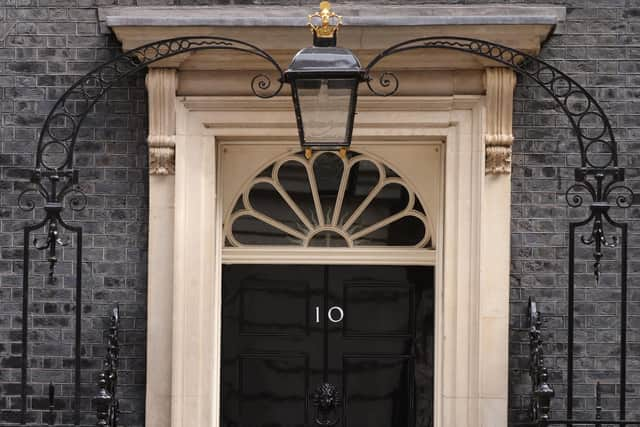Keir Starmer's Labour: What must the party do to win the next general election? – Ian Swanson
and live on Freeview channel 276
[Let us know what you think and join the conversation at the bottom of this article.]
But despite the case for seeking to secure her own mandate from the voters, an election looks unlikely. Although there have been predictions of a popularity bounce for the Tories with a new leader promising tax cuts, it is also forecast to be short-lived, as voters get to know Ms Truss better.
A recent YouGov poll for The Times gave Labour its biggest lead for nearly a decade, with the party on 43 per cent, 15 points ahead of the Tories on 28.


Advertisement
Hide AdAdvertisement
Hide AdBut Labour knows it can't take anything for granted and a report earlier this month by the Scottish Fabians outlined what the party needs to do to win seats north of the border, an essential part of any victory.
The so-called Red Wall seats in the North and Midlands of England – constituencies the Tories captured last time after generations of Labour representation – will also be key to any Labour recovery. But the Fabians’ report describes Scotland as “the first Red Wall” where Labour seats fell in 2015, not to the Tories but to the SNP.
The report says Labour has to gain 124 seats across the UK to secure a majority of one and, of the 150 potential target seats, 25 are in Scotland, all of them held by the SNP. They include East Lothian, Midlothian and Edinburgh South West.
Labour did well to overtake the Tories to become the second biggest party at this year’s council elections in Scotland. But the report argues Labour’s focus now has to be on winning votes from the SNP rather than trying to chase more Tory votes.
Advertisement
Hide AdAdvertisement
Hide AdAnd it notes that analysis shows one-in-five SNP and Green voters at the council elections put Labour second, voting therefore across the constitutional divide. These are the voters, the report argues, Labour must target, highlighting that the choice at a general election is between a Labour or Tory Prime Minister. It urges a targeted focus on younger, more aspirational voters.
The SNP and the Greens have both made clear that unless there is a change of heart at Number Ten over a Section 30 Order or a Supreme Court ruling that allows another independence referendum, then they will treat the next general election as a de facto referendum.
But Labour will want to talk about other issues, such as the cost-of-living crisis. “Scottish Labour must be seen as the party that can speak to voters across the constitutional divide,” say the Fabians.
The report’s analysis is encouraging for Labour, but persuading voters to turn away from the independence question when other parties are ramping it up as the sole issue may prove easier said than done.
Advertisement
Hide AdAdvertisement
Hide AdHowever, there are other positive signs for Labour too, if the party leadership is willing to make the most of them. Many voters appear sympathetic to workers striking for decent pay rises when everyone is caught up in the cost-of-living crisis and a new poll found nearly half of Tory voters support renationalisation of Britain's energy industry.
This is natural Labour territory the party should not neglect.
Comment Guidelines
National World encourages reader discussion on our stories. User feedback, insights and back-and-forth exchanges add a rich layer of context to reporting. Please review our Community Guidelines before commenting.
